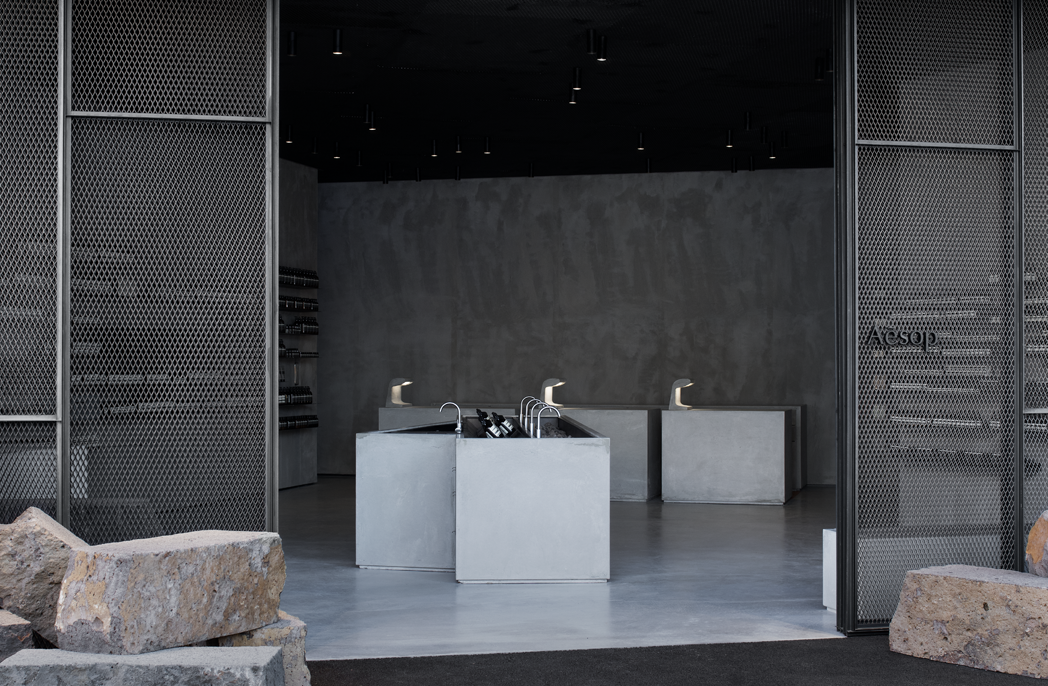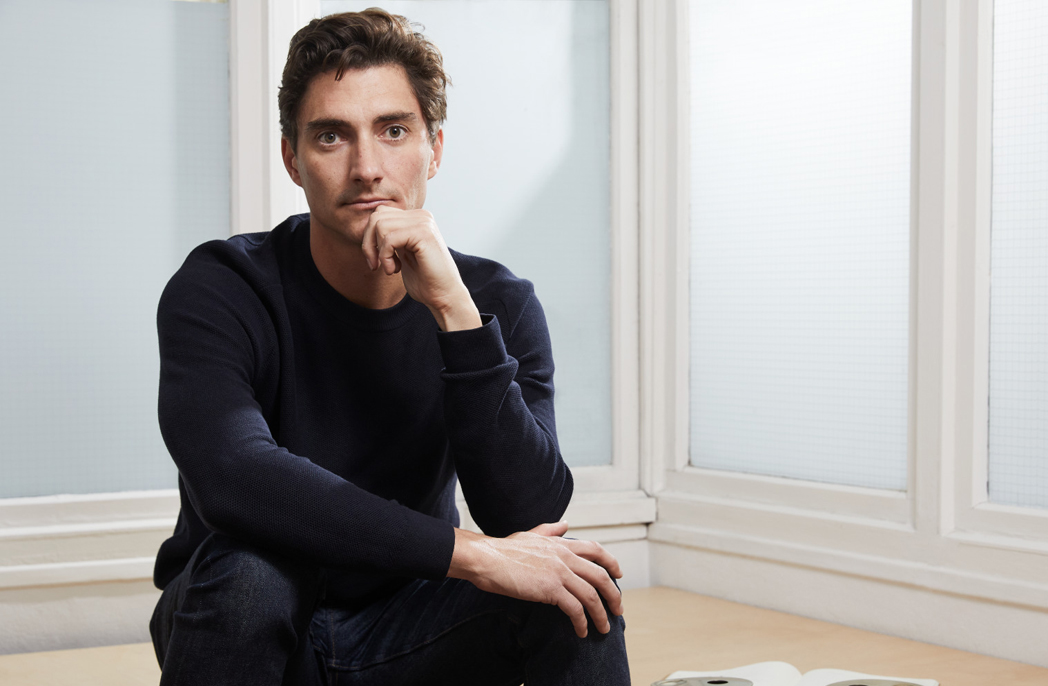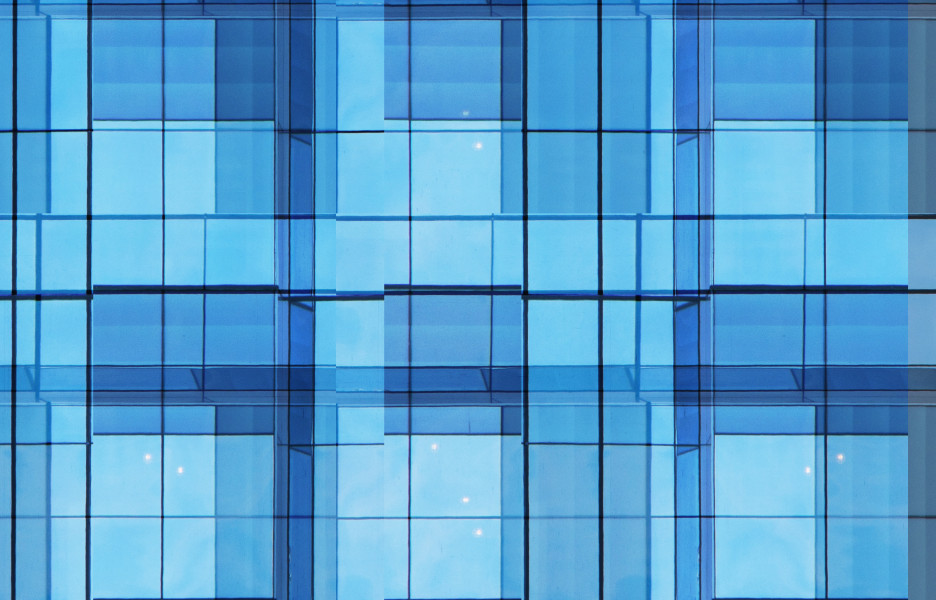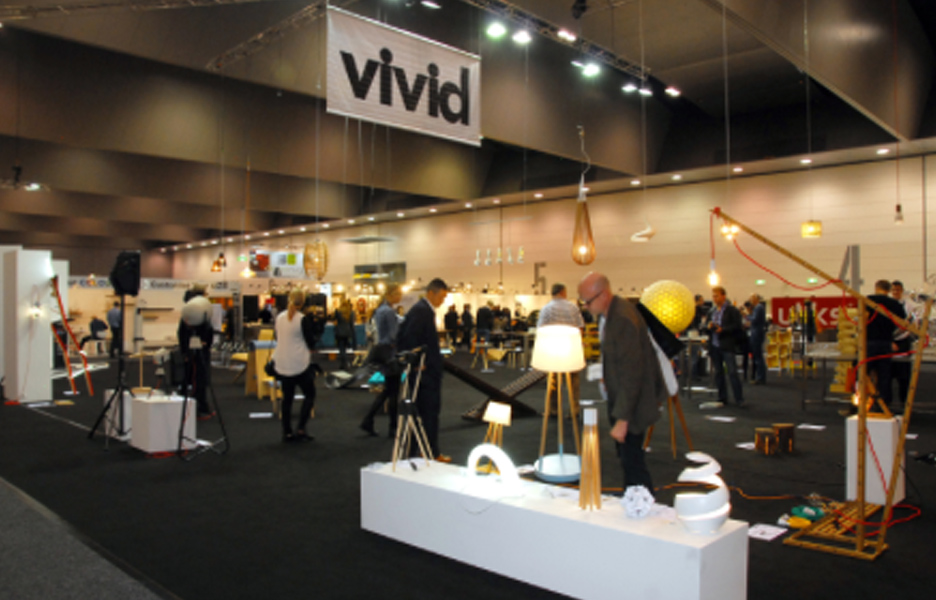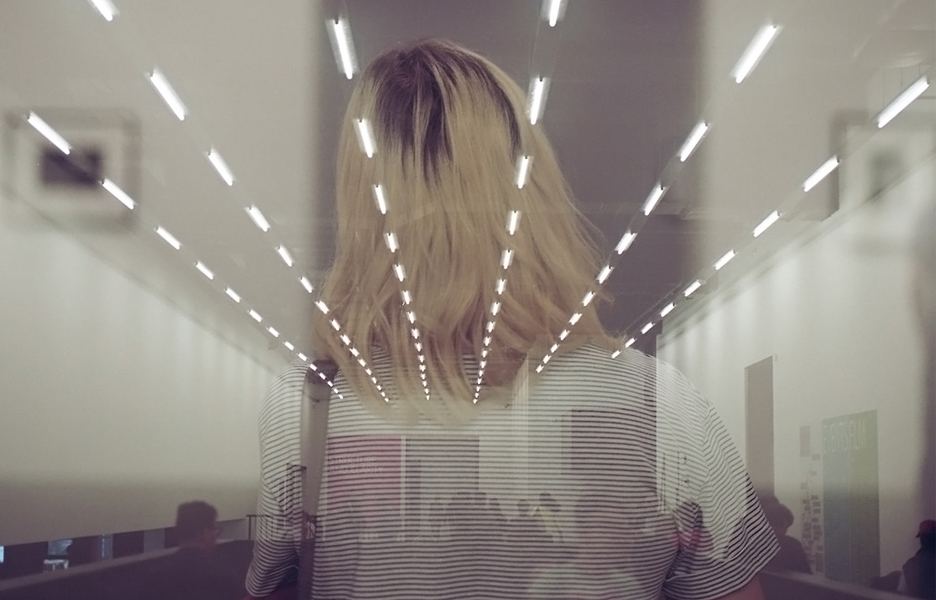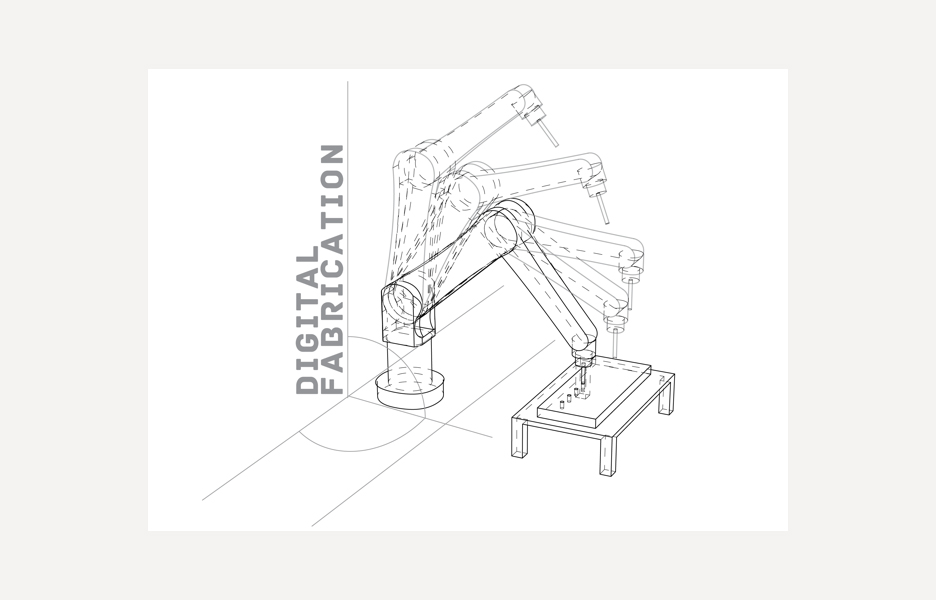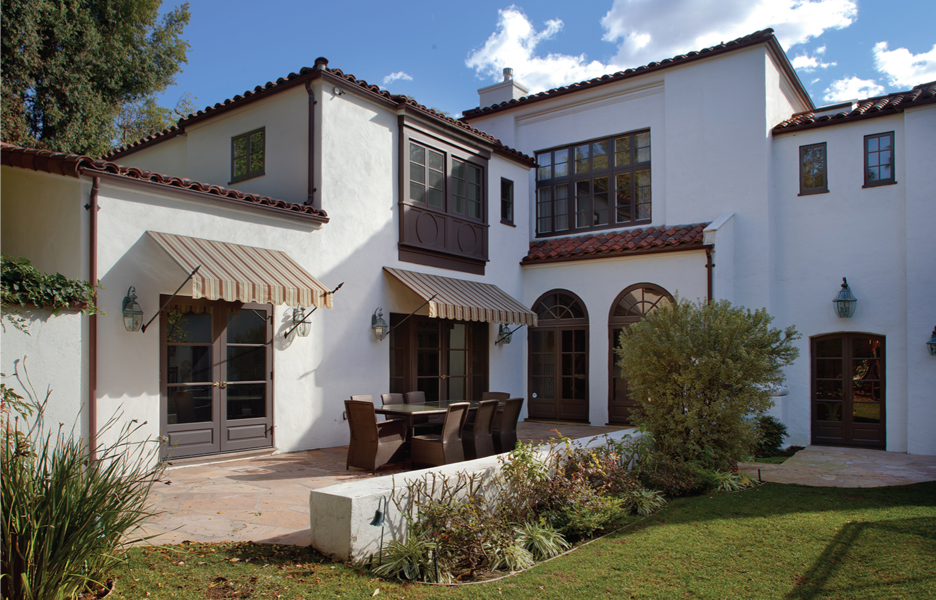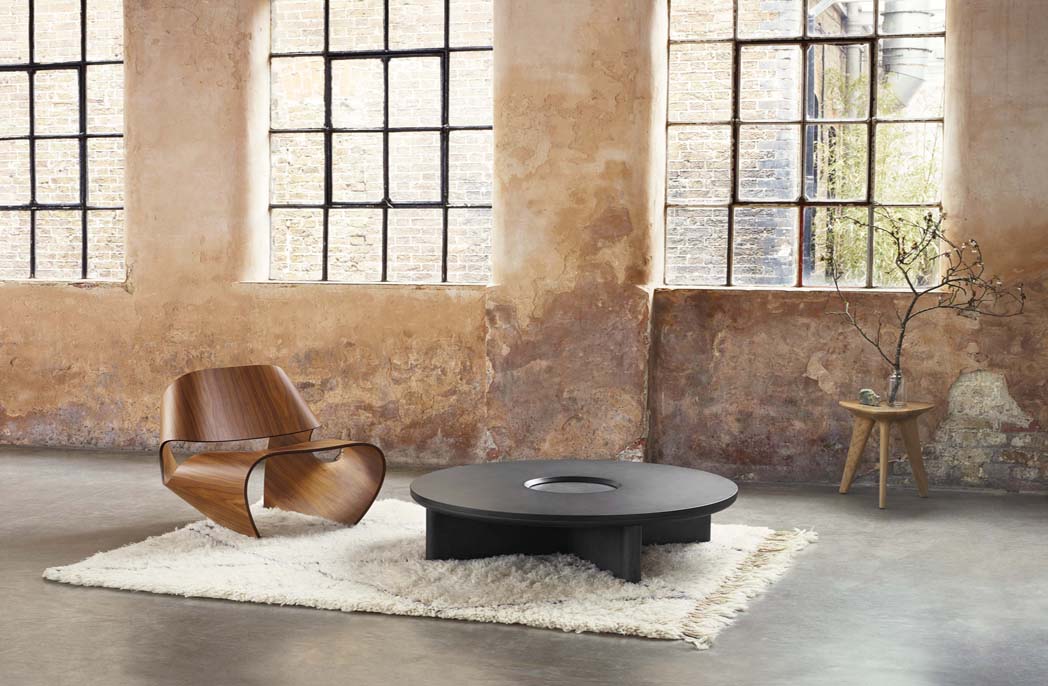
In full bloom: Melbourne artist Jessie French designs world-first algae-based window decals for Aesop
In full bloom: Melbourne artist Jessie French designs world-first algae-based window decals for Aesop
Share
The writing is on the wall — or, at least, the window — for plastics, thanks to an innovative collaboration between Aesop and Melbourne artist Jessie French. In place of the usual petrochemical-based PVC decals, French has been applying algae-based films to the shopfronts of 28 Aesop stores across Australia and New Zealand. These films, using a recipe French has devised herself from renewable ingredients, promise to transform the way petrochemicals are used in promotion and design.
The decals employed in the new campaign are bottle- and jar-shaped, with hues and textures that evoke their organic origin. French says she was approached by Aesop as part of the Melbourne-based business’s push to reduce its environmental impact.
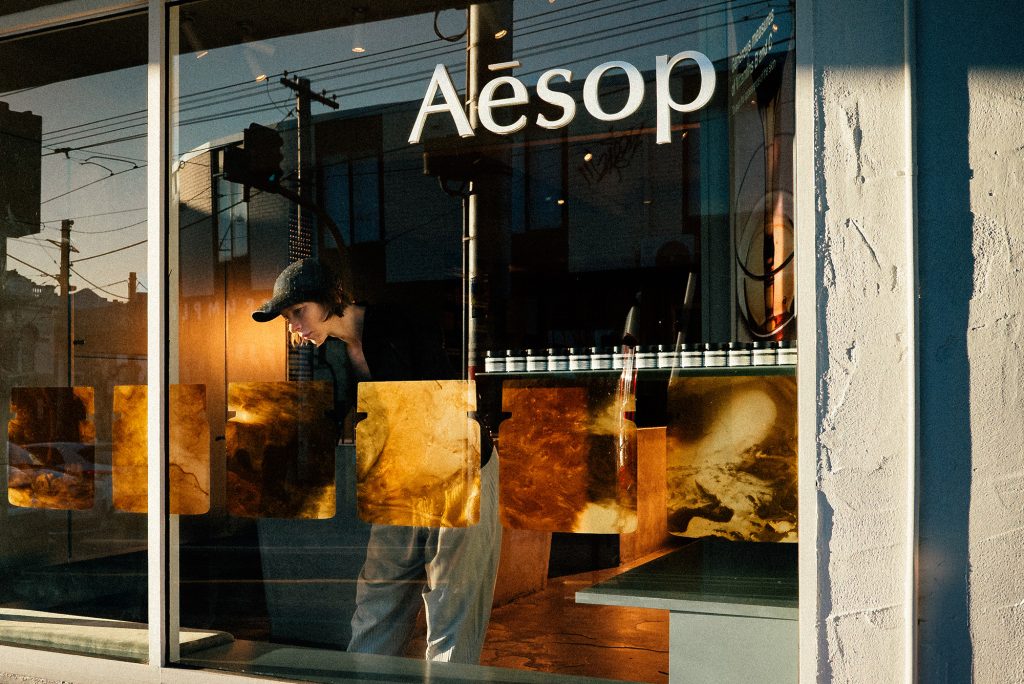
“I’m the only person in the world making a non-petrochemical decal,” French says. “Aesop let me know that they’d already reduced significantly the use of decals because of the impact on the environment. That impact is really to do with the material that traditional decals are made from, which is really quite toxic.”
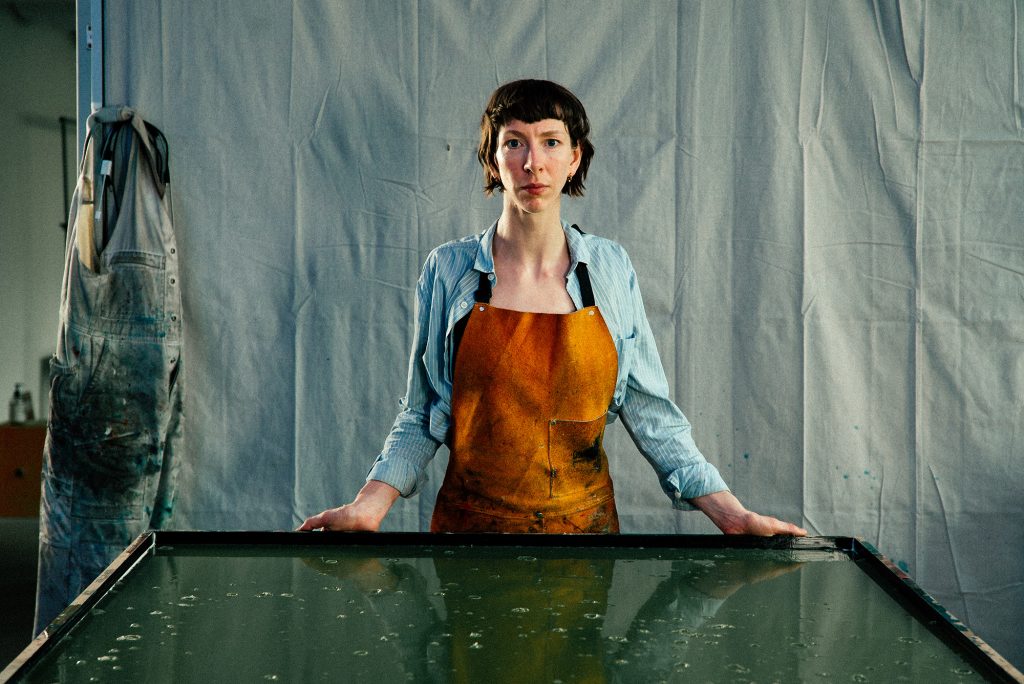
French highlights research that has shown the monomers (the chemical molecules that make up plastic polymers) within traditional PVC decals have significant health impacts on the people responsible for making them — people who tend to belong to lower socioeconomic communities or racial minorities.
“PVC is not great during production, it’s not great when installed and when used it can’t be recycled, so it will usually end up in landfill, incinerated or as mismanaged waste that ultimately will end up in the oceans, where it will break down into monomers.”
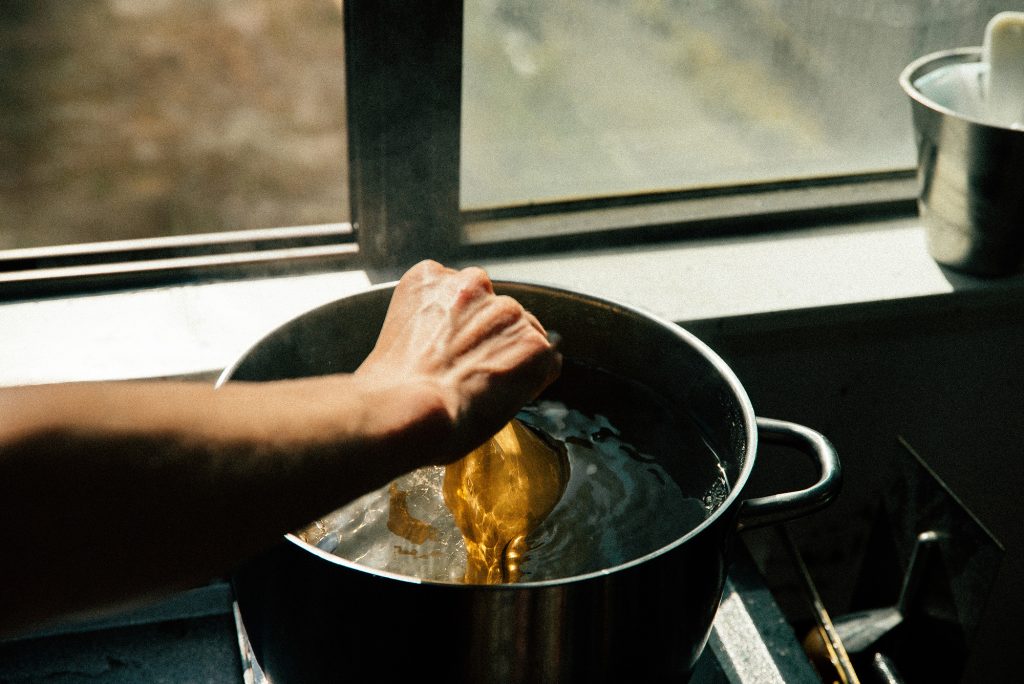
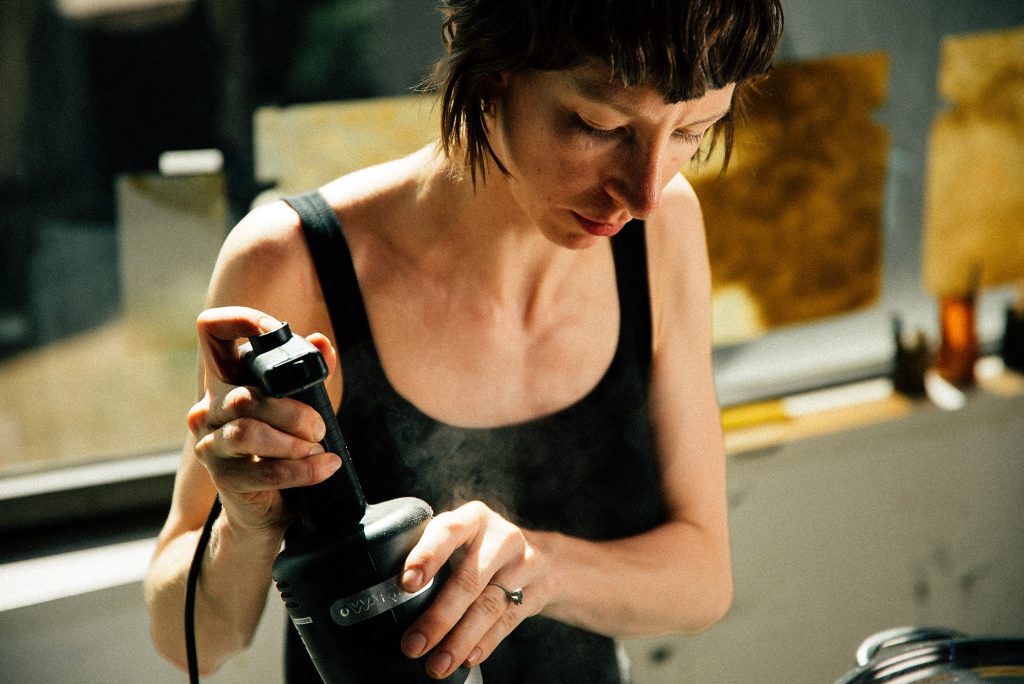
In pursuit of a post-petrochemical world
Aesop was very excited by the experiments French and her studio OTHER MATTER had been conducting into using algae to make bioplastic — a term French herself tries to avoid, because some companies can use it as a form of greenwashing by including a tiny amount of organic material in their petrochemical products.
“Aesop has been an excellent partner because they’ve really supported the campaigns we’ve been rolling out, which showcase the different capabilities of the material and the ways that it can be applied aesthetically, as well as testing new mechanical aspects.”
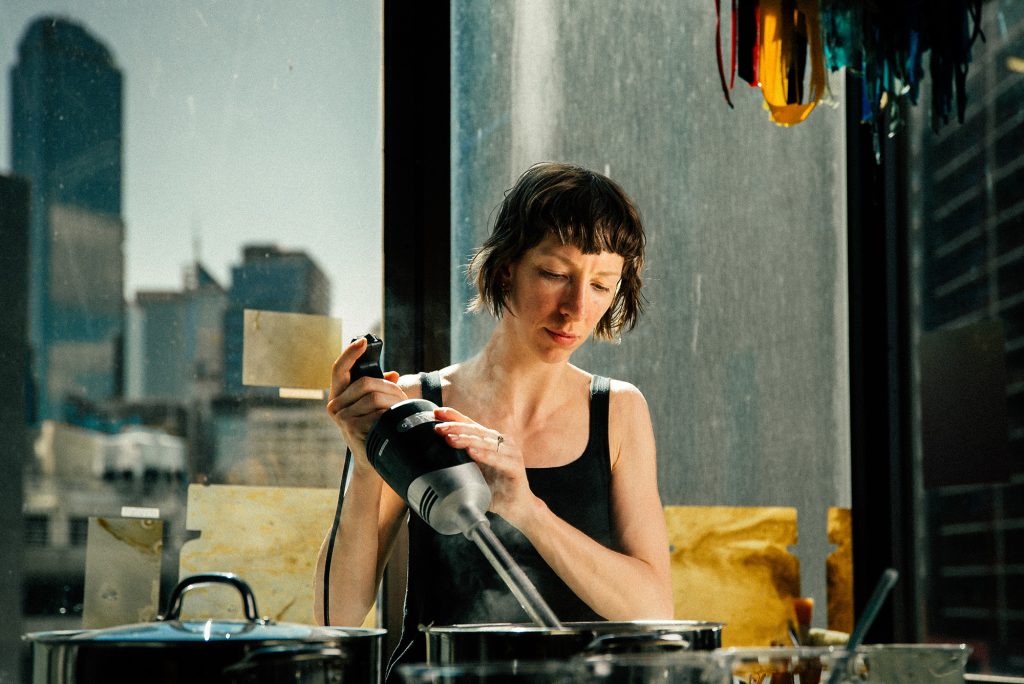
Compared to PVC, the production process is far more environmentally friendly and ethical. The algae French uses can be easily grown and harvested, with supply chains that are established and easy to monitor. Even better, the final product is something that can be easily repurposed or reused.
“The beautiful thing about this decal material is that it can be put back into a pot of boiling water after it’s been cut off the windows. It can be dissolved or melted back down into a liquid and poured out and moulded again into a fresh sheet.”
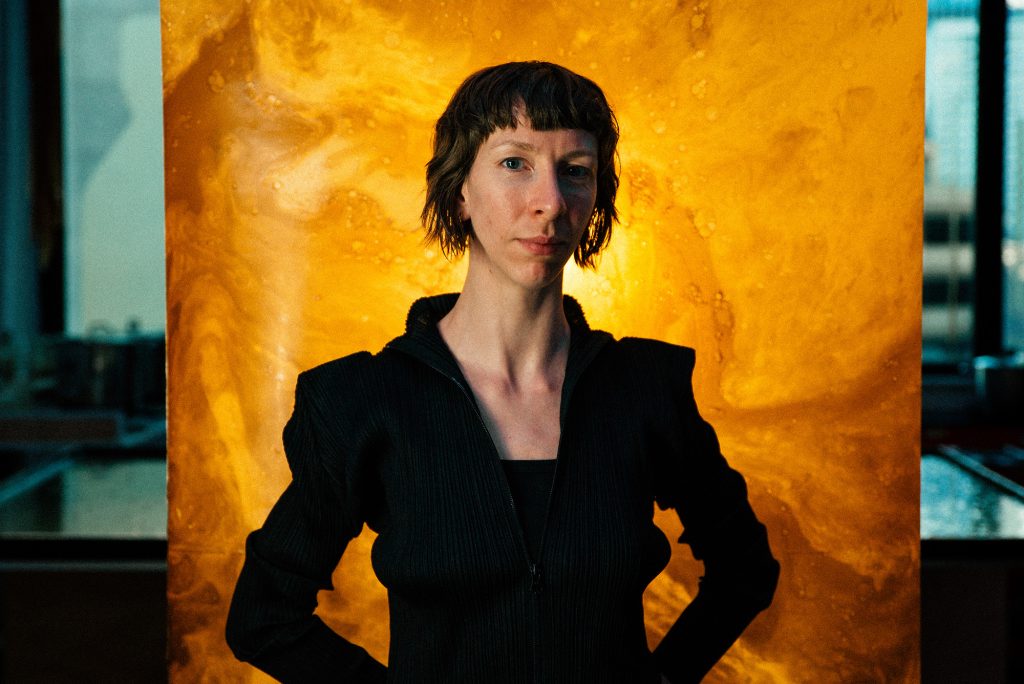
Because of this, the production process tends to be far less wasteful, as the unwanted cuttings from each decal can be reused, rather than simply thrown away. For this latest collaboration, French has also experimented with avoiding the petrochemical adhesives used to fasten traditional decals to glass.
“If you’ve had any personal experience removing decals with that adhesive on them, you’ll know it’s extremely messy. You have to scrape it off a window, and you usually need a bunch of solvents. The bottle decals that we have for this current campaign are 2.3 metres high — if you used an adhesive the installers would hate you and the shops would smell like isopropyl alcohol.”
This experimental approach to fixing the decals to shopfronts has been so successful that Aesop is rolling it out globally, with French’s glueless glue currently splashed across the windows of the New York store.
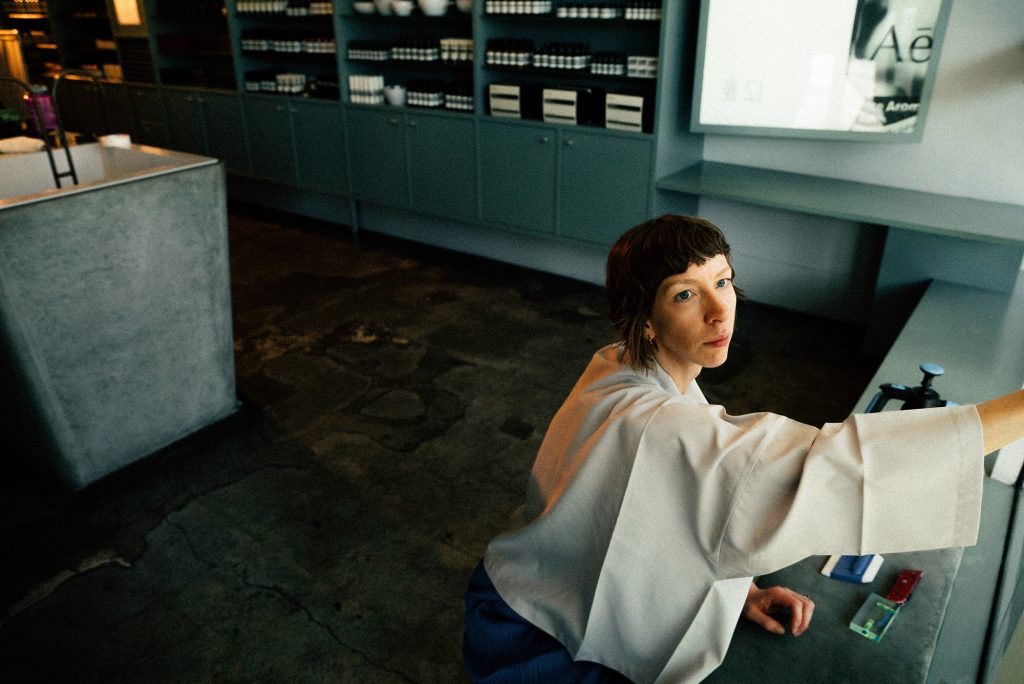
A quiet revolution makes waves
While the artist hopes her non-petrochemical plastics will spark a global move away from toxic films, she is not aiming for an overnight revolution. In the past, new materials have expanded production so quickly that they have sometimes become as problematic as the materials they were designed to replace. French has a patent pending on her algae-based plastic and her studio, at present, is the sole source of supply.
“I don’t want to move fast and break things like Mark Zuckerberg. At the moment, the scale is really based on my capacity and I’m intentionally scaling this in quite a slow, considerate way. Alongside developing this innovation, I’m keen to develop a way for this to grow so that a circular recycling process is really built into it.”
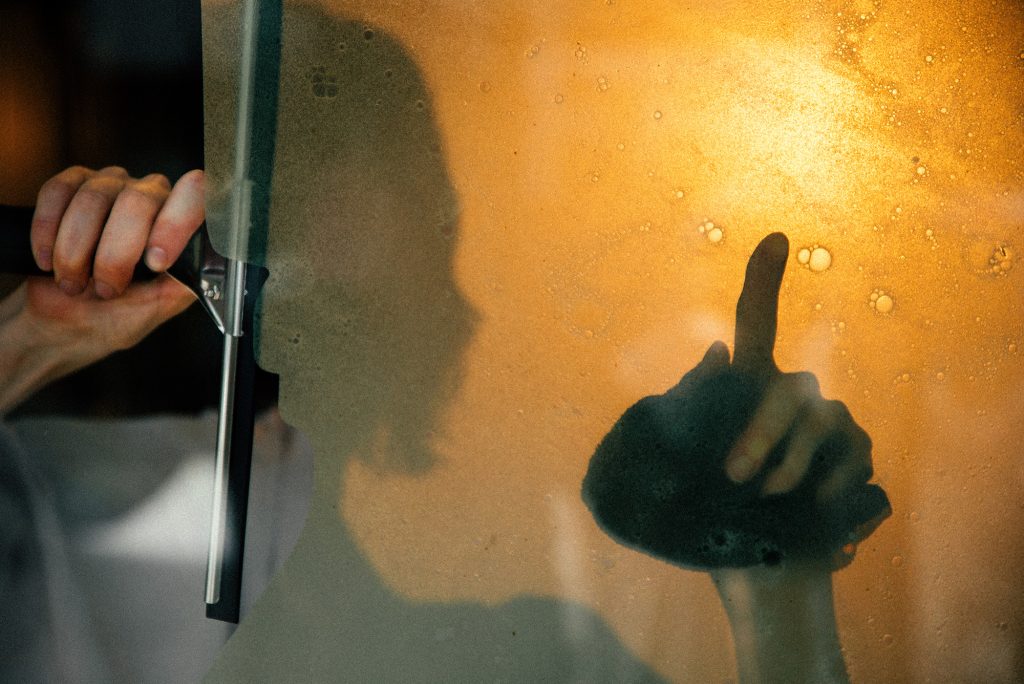
As an artist, French hopes the current campaign will also help raise awareness of how ingrained petrochemical products are in the world of art and design. The idea for algae-based decals came about when she realised, on going to exhibit some of her work, that each piece would be accompanied by a petrochemical-based plastic wall tag.
“After doing all this research on plastics and their impacts, I just felt there was no way I could have those tags as the medium for explaining my work in an exhibition. Once you start looking at the materials around you and thinking about their impact, they all become a lot more present. With my artistic work, I hope it helps people have a little more awareness of materials and the fact that these materials will have their own impacts and lifetimes.”
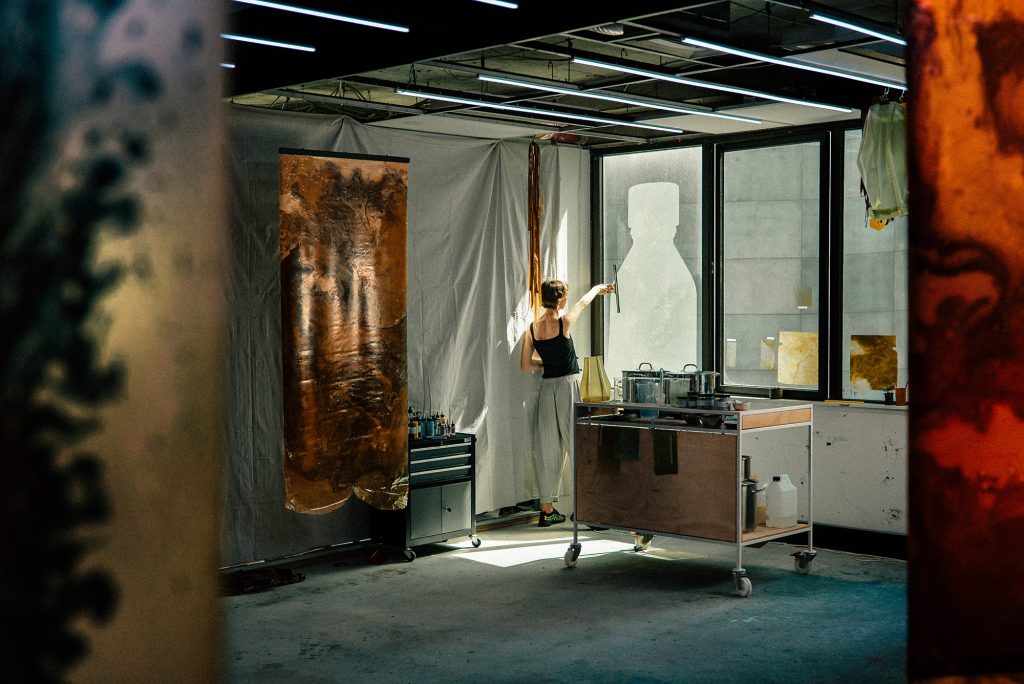
While art can help change the conversation around renewables, French says she sees the commercial nature of the Aesop decals as a more direct form of action.
“There are lots of more sustainable materials that we could be shoving in everything from paint to decals to building materials. What we need right now is actual solutions. We don’t really have time to just be making art about this stuff. We need to be doing a little bit more in the real world.”
You Might also Like

